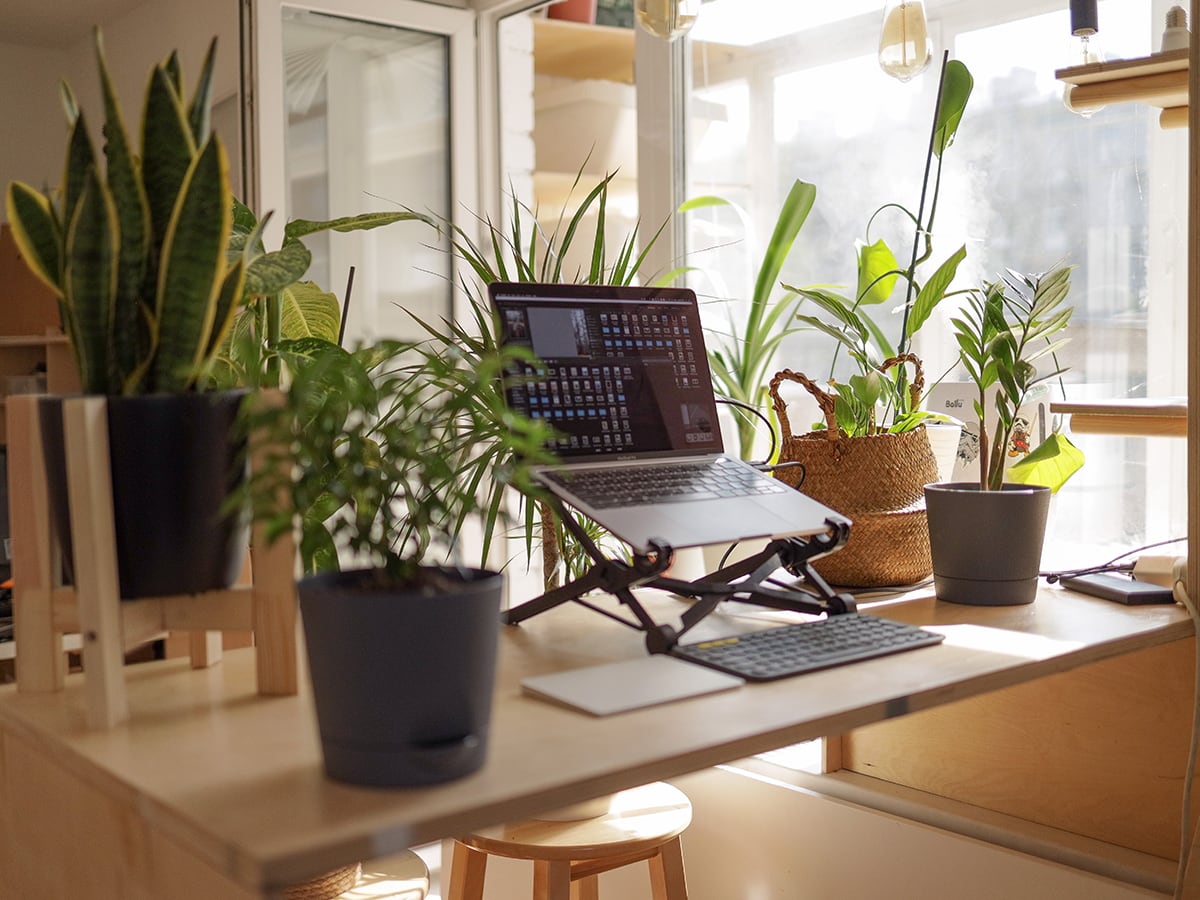Working from home has become the new normal for many of us in recent months. And while there are plenty of benefits to this arrangement, it can also be a challenge to stay productive and healthy in our home work spaces. In this blog post, we will explore some tips for creating a productive and healthy home work space. From ergonomics to exercise and nutrition, we will cover everything you need to know to make the most of your at-home office.
The importance of having a dedicated work space
When you work from home, it’s important to have a dedicated work space. This will help you stay focused and productive. It doesn’t have to be a big space, but it should be comfortable and free from distractions.
Your work space should be set up in a way that promotes healthy posture and ergonomics. Make sure your chair is supportive and that your monitor is at the correct height. Take breaks often to move around and stretch.
Having a dedicated work space will also help you keep work and personal life separate. When you’re done with work for the day, you can close the door on your office and forget about it until tomorrow. This can help you avoid burnout and maintain a healthy balance between work and play.
Tips for creating a productive and healthy work space
When you work from home, it’s easy to let your workspace become cluttered and unorganized. But a messy desk can lead to a chaotic mind, which is not conducive to productivity. Follow these tips to create a clean and healthy work space that will help you get the job done:
- Keep your desk free of clutter. This means no piles of paper, no sticky notes everywhere, and no knick-knacks cluttering up your surface. A neat and organized desk will help you focus on the task at hand and avoid distractions.
- Make sure your chair is comfortable. You’re going to be spending a lot of time sitting in it, so make sure it’s ergonomic and supports your back properly. You don’t want to end up with aching muscles or a sore back!
- Get some fresh air. Open up a window or door to let in some natural light and fresh air. This will help you avoid feeling cooped up and will also improve your concentration.
- Take breaks often. Don’t try to power through your work without taking any breaks – it’s not healthy or productive. Get up and move around every 20 minutes or so, and make sure to take a real break for lunch away from your desk.
5 . Stay hydrated . Drink plenty of water throughout the day to keep yourself hydrated . Dehydration can lead to fatigue , headaches , and other health problems .
The benefits of working from home
There are many benefits to working from home, including:
- Increased flexibility and freedom – You can set your own hours and take breaks when you need them.
- Reduced distractions – You won’t have colleagues or meetings to interrupt your work.
- Improved work/life balance – You can better manage your time and responsibilities.
- Fewer costs – You won’t need to commute or buy lunch every day.
- More relaxed dress code – You can wear whatever you want!
- Increased motivation – Working from home can help you stay focused and motivated.
How to overcome common productivity pitfalls when working from home
Working from home can be a great way to boost your productivity and creativity. However, there are a few common pitfalls that can make working from home less than optimal. Here are a few tips on how to overcome these productivity pitfalls:
- Establish a dedicated work space: One of the most common productivity pitfalls when working from home is the lack of a dedicated work space. It can be tempting to work from your bed or couch, but this can lead to poor posture and decreased concentration. Instead, try to establish a dedicated work space in your home, even if it’s just a small corner of your living room or bedroom. This will help you stay focused and motivated while you work.
- Take breaks: It’s important to take breaks when you’re working from home, even if you don’t feel like you need them. Taking regular breaks will help you avoid burnout and will allow you to come back to your work with fresh energy and ideas. Try setting a timer for every 20 minutes or so and use that time to get up and stretch, grab a snack, or simply step away from your desk for a moment.
- Set boundaries: One of the challenges of working from home is setting boundaries between your personal and professional life. It can be difficult to “turn off” at the end of the day when you’re working in the same space where you live. To combat this,

